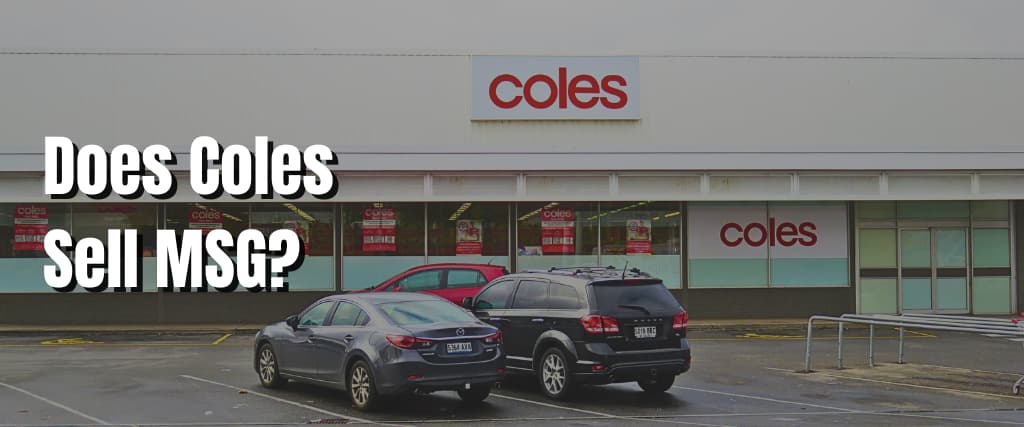Monosodium glutamate, or MSG, has been under investigation and attention for many years. Questions regarding its availability at well-known grocery stores like Coles are frequently raised because to worries about its possible health effects and the fact that it is included in many food products. This page aims to shed light on the truth regarding the enquiry: Does Coles sell MSG?
MSG Demystified: A Quick Overview

Monosodium glutamate, also known as MSG, is a flavour enhancer that is frequently used in food production. It is made from glutamic acid, a naturally occuring amino acid found in many foods like tomatoes, cheese, and mushrooms. The umami flavour, which is frequently referred to as the “fifth taste” along with sweet, sour, salty, and bitter, is enhanced with MSG.
MSG’s Controversial History

MSG has been the subject of debate over the years, mostly in relation to accusations that it causes symptoms including headaches, vertigo, and nausea, which are commonly referred to as “Chinese Restaurant Syndrome.” Scientific studies, however, have largely debunked these claims, concluding that there is insufficient data to support a consistent link between MSG use and these reported symptoms. When consumed within reasonable limits, regulatory agencies like the U.S. Food and Drug Administration (FDA) define MSG as “generally recognised as safe” (GRAS).
MSG and Coles: A Closer Exam

Customers can choose from a wide variety of food products at Coles, one of Australia’s top grocery brands. It’s important to understand that the usage of MSG in the food sector is widespread when considering if they include it in their offers. MSG may be used as a flavour enhancer in a variety of packaged goods, such as sauces, pre-prepared meals, and snacks.

It’s critical to realise that Coles, like many other supermarkets, has a diverse selection of goods, some of which may contain MSG. Coles is not alone in this, though; it is representative of the wider range of packaged and processed foods on the market. Consumers who are concerned about the presence of MSG must carefully examine product labels.
Understanding Food Labels to Make Informed Decisions

Reading food labels is an effective tactic for people who want to avoid MSG or have sensitivities. MSG must normally be disclosed by manufacturers on ingredient labels. But it’s important to be aware that MSG might also be labelled as “yeast extract” or “hydrolyzed vegetable protein.” These substances have similar flavor-enhancing properties and also include glutamate.
The Relationship between Taste and Health

Though worries about MSG have been mostly allayed by scientific research, it is crucial to take into account the larger nutritional context. MSG-containing processed and packaged foods frequently have additional ingredients that, when ingested in excess, may not be good for your health. Therefore, maintaining a balanced diet that consists mostly of whole, unprocessed foods remains essential for maintaining general wellbeing.
As a result,

The question of whether Coles sells MSG is legitimate because many packaged foods that are sold in supermarkets may contain MSG or similar flavour enhancers. This fact, though, is representative of the larger food sector and goes beyond Coles. Consumers who are worried about MSG should practise caution by reading ingredient labels and learning other names for substances that contain glutamate.

As our understanding expands, it is increasingly important to base dietary decisions on information from reliable sources and supported by scientific research. The availability of MSG in food products needs to be seen in the context of the complex and varied culinary world, where flavour enhancement is only one aspect of the whole gourmet experience.





